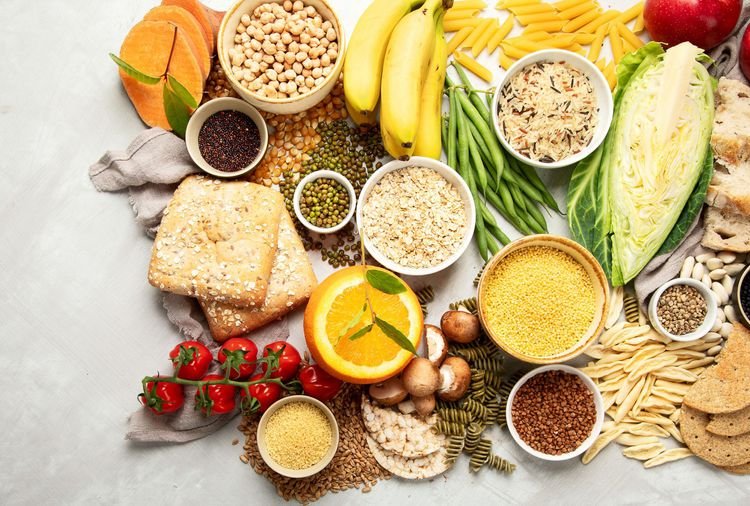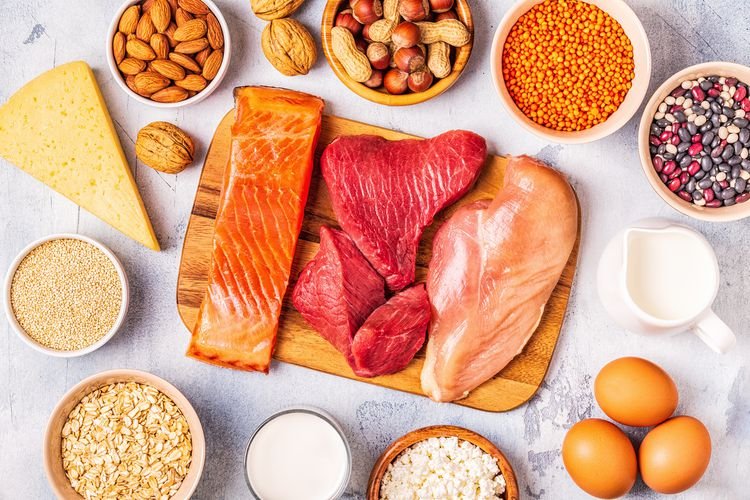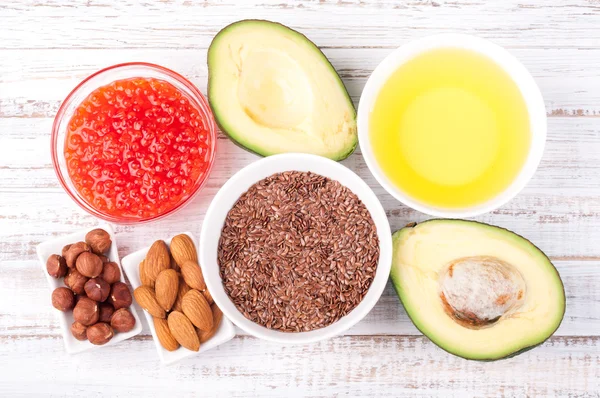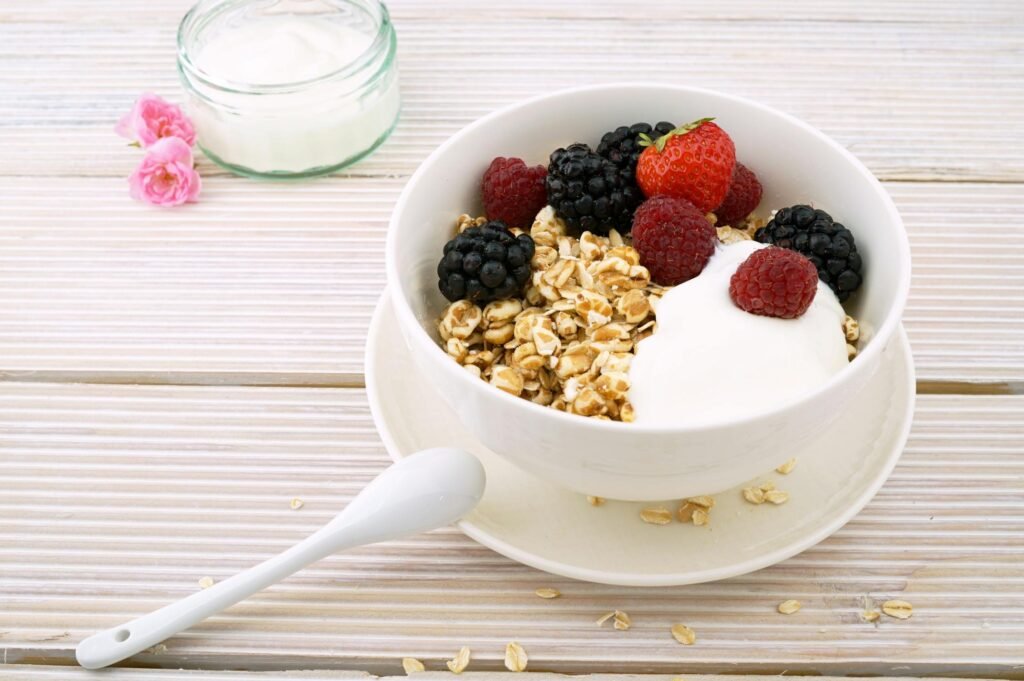A balanced diet is crucial for maintaining good health and overall well-being. It provides the body with essential nutrients needed to function correctly, supporting everything from energy levels to immune function. By ensuring that you consume the right proportions of macronutrients (carbohydrates, proteins, and fats) and micronutrients (vitamins and minerals), a balanced diet helps to prevent nutritional deficiencies and chronic diseases such as obesity, diabetes, and heart disease.
Moreover, a balanced diet contributes to better mental health. Proper nutrition supports brain function, enhancing mood and cognitive abilities, while an unbalanced diet can lead to mental fatigue and depression.
It’s also important to recognize that a balanced diet is not a one-size-fits-all approach. Individual dietary needs can vary based on factors such as age, gender, activity level, and health status. Therefore, understanding the components of a balanced diet and how to tailor it to your specific needs is vital for achieving optimal health.
Table of Contents
Understanding the Importance of a Balanced Diet
Nutritional Benefits

A balanced diet is essential for supplying the body with the nutrients it needs to function optimally. These nutrients include macronutrients like carbohydrates, proteins, and fats, as well as micronutrients like vitamins and minerals. Carbohydrates provide the primary source of energy, proteins are vital for growth and repair, and fats are necessary for brain health and hormone production. Micronutrients, although needed in smaller amounts, play a critical role in processes such as bone health (calcium), immune function (vitamin C), and oxygen transport (iron). A diet that incorporates a variety of foods ensures that all these essential nutrients are obtained, supporting the body’s daily functions and overall health.
Impact on Overall Health and Wellness
A balanced diet not only fuels the body but also supports overall health and wellness. Proper nutrition enhances energy levels, improves mood, and contributes to better sleep quality. When you consume a balanced diet, you’re more likely to maintain a healthy weight, have a stronger immune system, and experience fewer health issues. A diet rich in fruits, vegetables, whole grains, and lean proteins provides antioxidants and anti-inflammatory compounds that protect the body from oxidative stress and inflammation, common contributors to chronic illnesses. Furthermore, staying hydrated and consuming enough fiber aids digestion, reducing the risk of gastrointestinal issues and promoting regular bowel movements.
Prevention of Diseases
One of the most significant benefits of a balanced diet is its role in disease prevention. Poor dietary choices are linked to numerous chronic diseases, including heart disease, diabetes, and certain cancers. For example, diets high in saturated fats, sugars, and processed foods can lead to obesity,
High blood pressure, and elevated cholesterol levels, all of which are risk factors for heart disease. Conversely, a balanced diet that emphasizes fruits, vegetables, whole grains, and healthy fats can help manage and reduce these risk factors. Additionally, the fiber in whole grains and vegetables aids in maintaining healthy blood sugar levels, reducing the risk of type 2 diabetes. Regular intake of vitamins and minerals also boosts immune function, helping the body to ward off infections and diseases.
Components of a Balanced Diet
Macronutrients: Carbohydrates, Proteins, and Fats

Carbohydrates are the body’s primary source of energy. They are found in foods such as fruits, vegetables, whole grains, and legumes. Carbohydrates are broken down into glucose, which the body uses for immediate energy. It’s important to choose complex carbohydrates like whole grains and vegetables, which provide sustained energy and are rich in fibber , over simple carbohydrates like sugar and refined grains, which can cause energy spikes and crashes.
Proteins are essential for building and repairing tissues, making enzymes and hormones, and supporting immune function. Proteins are made up of amino acids, some of which the body cannot produce on its own. These essential amino acids must be obtained from the diet. Good sources of protein include lean meats, poultry, fish, eggs, dairy products, beans, legumes, and nuts.


Fats are crucial for brain health, hormone production, and the absorption of fat-soluble vitamins (A, D, E, and K). While fats have often been viewed negatively, they are an essential part of a balanced diet when consumed in moderation. Healthy fats, such as those found in avocados, nuts, seeds, and olive oil, support heart health and provide long-lasting energy. It’s important to limit intake of saturated and trans fats, which can contribute to heart disease.
Read more about Vitamin ADK here.
Micronutrients: Vitamins and Minerals
Micronutrients, required in smaller amounts than macronutrients, are nonetheless vital for the proper functioning of the body. They include a wide range of vitamins and minerals, each playing a unique role in health.
Vitamins are organic compounds that are crucial for energy production, immune function, blood clotting, and other processes. For example, vitamin C is important for skin health and immune function, vitamin D is essential for bone health, and vitamin B12 is needed for nerve function and the production of DNA and red blood cells. Consuming a variety of fruits, vegetables, and whole foods helps ensure adequate vitamin intake.
Minerals are inorganic elements that support processes such as bone formation, nerve transmission, and muscle contraction. Calcium, magnesium, and phosphorus are critical for bone health, while iron is necessary for oxygen transport in the blood. Sources of minerals include dairy products, leafy greens, nuts, seeds, and lean meats.
Importance of Water and Fibre
Water is a fundamental component of a balanced diet, as it makes up about 60% of the human body and is involved in nearly every bodily function. It helps regulate body temperature, transport nutrients, remove waste products, and support metabolic processes. Staying hydrated is essential for maintaining energy levels and overall health. The general recommendation is to drink at least 8 cups (about 2 liters) of water per day, but individual needs can vary depending on activity level, climate, and overall health.

Fiber is a type of carbohydrate that the body cannot digest, yet it plays a critical role in maintaining digestive health. It helps regulate the body’s use of sugars, keeps hunger and blood sugar in check, and supports healthy bowel movements. There are two types of fiber: soluble fiber, which can help lower blood glucose and cholesterol levels, and insoluble fiber, which promotes regularity. High-fiber foods include fruits, vegetables, whole grains, legumes, nuts, and seeds.
Balancing Macronutrients for Optimal Health
Ideal Macronutrient Distribution
To maintain optimal health, it’s crucial to strike the right balance of macronutrients—carbohydrates, proteins, and fats—in your diet. The ideal macronutrient distribution can vary depending on individual factors like age, gender, activity level, and specific health goals, but general guidelines suggest the following distribution:
Carbohydrates: Approximately 45-65% of your total daily calories should come from carbohydrates. Carbohydrates are the body’s primary energy source, fueling everything from your brain to your muscles. Opt for complex carbohydrates, such as whole grains, fruits, and vegetables, which provide sustained energy and are rich in fiber, vitamins, and minerals.
Proteins: Around 10-35% of your daily caloric intake should be from proteins. Protein is essential for building and repairing tissues, supporting immune function, and maintaining muscle mass. Include a variety of protein sources in your diet, such as lean meats, poultry, fish, dairy products, beans, legumes, and plant-based proteins like tofu and quinoa.
Fats: Fats should make up about 20-35% of your total daily calories. Healthy fats, such as those found in avocados, nuts, seeds, and olive oil, play vital roles in brain function, hormone production, and nutrient absorption. It’s important to prioritize unsaturated fats while limiting the intake of saturated and trans fats, which can negatively impact heart health.
This balanced approach ensures that your body gets the energy it needs, along with the essential building blocks for growth, repair, and overall functioning.
Effects of Imbalance
Carbohydrates
| Too Many Carbohydrates: Consuming too many carbohydrates, especially refined carbs like white bread and sugary snacks, can lead to weight gain, blood sugar spikes, and increased risk of type 2 diabetes. Over time, high carbohydrate intake can also cause insulin resistance, a precursor to metabolic disorders. | Too Few Carbohydrates: Insufficient carbohydrate intake can lead to low energy levels, mental fatigue, and poor physical performance. Carbohydrates are the body’s preferred energy source, and depriving the body of this macronutrient can force it to break down protein for energy, compromising muscle mass and function. |
proteins
| Excess Protein: While protein is essential for health, excessive protein intake can put a strain on the kidneys and liver as they work to metabolise the extra nitrogen found in amino acids. High protein diets can also lead to an imbalance in other nutrients, reducing the intake of beneficial carbohydrates and fats. | Insufficient Protein: Not getting enough protein can result in muscle loss, weakened immune function, and slower recovery from illness or injury. Protein deficiency can also lead to feelings of fatigue and hunger since protein helps stabilize blood sugar levels and provides satiety. |
Fats
| Too Much Fat: High fat intake, especially from unhealthy sources like saturated and trans fats, can lead to weight gain, increased cholesterol levels, and a higher risk of cardiovascular diseases. Excessive fat consumption can also cause liver dysfunction and inflammation. | Too Little Fat: Fats are necessary for the absorption of fat-soluble vitamins (A, D, E, and K) and for maintaining healthy cell membranes. A diet too low in fat can result in deficiencies of these vitamins, leading to issues like poor vision, weak bones, and compromised immune function. Additionally, inadequate fat intake can negatively impact hormone production, leading to hormonal imbalances. |
Achieving the right balance of macronutrients is key to supporting your body’s diverse needs. By understanding and adjusting your macronutrient intake, you can optimise your diet for better health and well-being.
Role of Micronutrients in a Balanced Diet
Key Vitamins and Minerals
Micronutrients, including vitamins and minerals, are essential for the proper functioning of the body, even though they are needed in smaller amounts compared to macronutrients. Each micronutrient plays a specific role in maintaining health, supporting everything from immune function to bone health and beyond. Here are some of the key vitamins and minerals, along with their vital functions:
| Vitamin A: Essential for eye health, immune function, and skin integrity. Vitamin A is found in foods like carrots, sweet potatoes, and dark leafy greens. • Vitamin C: Important for collagen production, wound healing, and boosting the immune system. It also acts as an antioxidant, helping to protect cells from damage. Citrus fruits, strawberries, bell peppers, and broccoli are excellent sources of vitamin C. • Vitamin D: Crucial for calcium absorption, bone health, and immune support. Vitamin D can be synthesized in the skin through exposure to sunlight and is also found in fortified dairy products, fatty fish, and egg yolks. • Vitamin E: Acts as a powerful antioxidant, protecting cells from oxidative stress, and supports skin and eye health. Sources include nuts, seeds, spinach, and broccoli. • Vitamin K: Necessary for blood clotting and bone metabolism. Leafy green vegetables, such as kale and spinach, are rich sources of vitamin K. • Calcium: Essential for strong bones and teeth, muscle function, and nerve transmission. Dairy products, leafy greens, and fortified plant-based milk are good sources of calcium. • Iron: Required for the production of hemoglobin, which carries oxygen in the blood. Iron is found in red meat, poultry, lentils, beans, and fortified cereals. Iron from animal sources (heme iron) is more easily absorbed than iron from plant sources (non-heme iron). • Magnesium: Involved in over 300 biochemical reactions in the body, including muscle and nerve function, blood glucose control, and bone health. Nuts, seeds, whole grains, and leafy green vegetables are rich in magnesium. • Potassium: Helps maintain normal fluid balance, supports muscle function, and is vital for heart health. Bananas, potatoes, legumes, and oranges are excellent sources of potassium. • Zinc: Plays a role in immune function, protein synthesis, and wound healing. It is found in meat, shellfish, legumes, seeds, and nuts. |
Importance of Variety in Food Choices
To ensure adequate intake of all necessary vitamins and minerals, it’s essential to consume a wide variety of foods. Relying on a limited range of foods increases the risk of nutrient deficiencies and can lead to imbalances that negatively impact health. Each food group offers a unique profile of nutrients:
| Fruits and Vegetables: These are rich sources of vitamins, minerals, fibre, and antioxidants. Different colours of fruits and vegetables indicate different nutrient profiles, so it’s important to eat a “rainbow” of produce to maximise nutrient intake. Whole Grains: Foods like oats, quinoa, brown rice, and whole wheat provide essential B vitamins, iron, magnesium, and fibre. Whole grains support energy levels, digestive health, and heart health. Proteins: Both animal and plant-based proteins provide essential amino acids and nutrients such as iron, zinc, and B vitamins. Variety within protein sources (e.g., lean meats, fish, beans, nuts, seeds, and tofu) ensures a more comprehensive nutrient intake. Dairy or Dairy Alternatives: These foods are excellent sources of calcium, vitamin D, and potassium. Including dairy or fortified plant-based alternatives helps support bone health and provides other essential nutrients. Healthy Fats: Sources such as avocados, nuts, seeds, and olive oil provide essential fatty acids and fat-soluble vitamins (A, D, E, and K). Healthy fats also enhance the absorption of these vitamins and support overall cellular function. |
By diversifying food choices, you can achieve a balanced intake of all necessary micronutrients, supporting your body’s health and reducing the risk of nutrient deficiencies. Incorporating a variety of foods not only ensures nutritional adequacy but also adds enjoyment and satisfaction to your diet.
Creating a Balanced Meal Plan
Steps to Design a Daily Balanced Diet
| -Determine Your Caloric Needs: Start by calculating your daily caloric requirements based on factors like age, gender, weight, height, and activity level. Online calculators can help estimate your calorie needs to maintain, lose, or gain weight. –Distribute Macronutrients Wisely: Use the general guideline of 45-65% carbohydrates, 10-35% protein, and 20-35% fats for your total caloric intake. Adjust these percentages based on specific health goals, such as muscle building (more protein) or endurance training (more carbohydrates). –Include a Variety of Food Groups: Aim to include fruits, vegetables, whole grains, lean proteins, and healthy fats in every meal. A varied diet ensures you receive a wide range of nutrients essential for overall health. –Plan for Three Main Meals and Snacks: Structure your day around three main meals (breakfast, lunch, and dinner) and two to three small snacks. This helps maintain steady energy levels and prevents overeating at any one meal. –Incorporate Colour and Diversity: Eating a “rainbow” of fruits and vegetables ensures you get a broad spectrum of vitamins, minerals, and antioxidants. Different colors often represent different nutrients, so variety is key. –Stay Hydrated: Water is a crucial part of a balanced diet. Include water-rich foods and beverages to meet your daily hydration needs, aiming for at least 8 cups of water per day. –Limit Processed Foods and Sugars: Minimise the intake of processed foods, sugary snacks, and beverages, which can add empty calories and lead to imbalances. Focus on whole, unprocessed foods for most of your meals. –Adjust for Special Dietary Needs: Consider any specific dietary requirements or restrictions, such as vegetarianism, food allergies, or medical conditions like diabetes. Adjust your meal plan to accommodate these needs while still ensuring balanced nutrition. –Prepare and Plan Ahead: Meal prepping can save time and help you stick to your balanced diet plan. Cook in batches, use leftovers creatively, and plan meals a week in advance to avoid unhealthy food choices. |
Sample Meal Plans for Different Dietary Needs
Standard Balanced Diet:
Breakfast:
• Oatmeal topped with fresh berries, a tablespoon of nuts, and a drizzle of honey.
• A glass of low-fat milk or a dairy alternative.
Snack:
• A banana with a tablespoon of almond butter.
Lunch:
• Grilled chicken breast with a mixed green salad (spinach, tomatoes, cucumbers, carrots) and olive oil vinaigrette.
• A serving of quinoa or brown rice.
Snack:
• Greek yogurt with a handful of mixed nuts.
Dinner:
• Baked salmon with steamed broccoli and sweet potatoes.
• A side of whole grain roll or bread.
Snack (optional):
• Sliced apple with a slice of cheddar cheese.

Vegetarian Balanced Diet:
Breakfast:
• Smoothie with spinach, banana, almond milk, chia seeds, and a scoop of plant-based protein powder.
Snack:
• Carrot and cucumber sticks with hummus.
Lunch:
• Quinoa and black bean salad with diced avocado, cherry tomatoes, corn, and lime dressing.
Snack:
• A handful of mixed berries and a small handful of nuts.
Dinner:
• Stir-fried tofu with mixed vegetables (bell peppers, broccoli, snap peas) served over brown rice.
• A side of miso soup.
Snack (optional):
• Dark chocolate (70% cocoa or higher) and a cup of herbal tea.
High-Protein Diet (for muscle building):

Breakfast:
• Scrambled eggs with spinach, tomatoes, and feta cheese.
• A slice of whole grain toast.
• A glass of low-fat milk or protein shake.
Snack:
• Cottage cheese with pineapple chunks.
Lunch:
• Grilled turkey breast wrap with whole wheat tortilla, lettuce, tomato, and avocado.
• A side of mixed green salad.
Snack:
• A protein bar with at least 15 grams of protein.
Dinner:
• Lean beef steak with roasted sweet potatoes and steamed asparagus.
• A side of quinoa.
Snack (optional):
• A hard-boiled egg and a small apple.
Low-Carb Diet (for weight loss):
Breakfast:
• Omelet made with two eggs, spinach, mushrooms, and cheese.
• A side of sliced avocado.
Snack:
• Celery sticks with cream cheese.
Lunch:
• Grilled chicken Caesar salad (without croutons), with romaine lettuce, parmesan cheese, and Caesar dressing.
Snack:
• A small handful of almonds.
Dinner:
• Baked cod with lemon and herbs, served with sautéed zucchini noodles and a side of mixed greens.
Snack (optional):
• A small serving of full-fat Greek yogurt with a few blueberries.
These sample meal plans show how you can create a balanced diet that meets specific dietary preferences and goals. By following these guidelines and making adjustments to suit individual needs, you can ensure that your diet is not only balanced but also enjoyable and sustainable.
Balanced Diet for Weight Management
How a Balanced Diet Supports Weight Loss and Maintenance
A balanced diet is a cornerstone of effective weight management, whether the goal is to lose weight or maintain a healthy weight. By providing the body with the right mix of nutrients, a balanced diet helps regulate hunger, maintain energy levels, and prevent overeating. Here’s how it works:
Promotes Satiety: A balanced diet that includes adequate amounts of protein, fibres, and healthy fats helps you feel fuller for longer. Protein, found in foods like lean meats, fish, eggs, and legumes, has a high satiety factor, which means it keeps you feeling satisfied after meals. Similarly, fiber-rich foods such as fruits, vegetables, and whole grains slow down digestion, which prevents spikes in blood sugar levels and keeps hunger at bay.
Supports Metabolic Health: By providing the right balance of macronutrients (carbohydrates, proteins, and fats), a balanced diet helps maintain a steady metabolism. This is crucial for efficient calorie burning and energy production. Whole grains and complex carbohydrates offer a slow release of energy, which can prevent the sluggishness and cravings associated with blood sugar crashes that often lead to overeating.
Prevents Nutrient Deficiencies: A balanced diet ensures you get all the necessary vitamins and minerals, which are critical for various metabolic processes, including those that influence weight. For example, adequate intake of vitamin D and calcium is important for fat metabolism, while B vitamins support energy production. When the body is well-nourished, it can function more effectively, supporting weight management efforts.
Reduces Cravings: Consuming a variety of nutrient-dense foods reduces the likelihood of cravings for unhealthy, calorie-dense snacks. When the body receives the nutrients it needs, it is less likely to crave processed foods high in sugar, salt, and unhealthy fats. This helps in maintaining a caloric deficit, which is essential for weight loss.
Maintains Lean Muscle Mass: Including sufficient protein in a balanced diet supports the maintenance of lean muscle mass, which is important for metabolism. Muscle tissue burns more calories at rest compared to fat tissue, so preserving muscle mass can help increase your basal metabolic rate (BMR), aiding in weight loss and maintenance.
By focusing on whole, unprocessed foods and maintaining a balanced intake of macronutrients and micronutrients, a balanced diet creates a sustainable approach to weight management. It allows for steady, gradual weight loss or maintenance, which is more likely to be long-lasting and healthier compared to extreme diets.
Common Myths About Dieting
There are many misconceptions about dieting that can lead people to adopt unhealthy or ineffective weight loss strategies. Here are some common myths about dieting and the truths behind them:
| Myth 1: All Calories Are Equal While it’s true that calories matter for weight loss, the source of those calories is equally important. A calorie from a sugary soda doesn’t have the same nutritional impact as a calorie from a piece of fruit. Whole foods provide essential nutrients, vitamins, and fiber, which support overall health and satiety. Empty calories from processed foods can lead to nutrient deficiencies and increase the risk of overeating because they often don’t satisfy hunger as effectively. |
| Myth 2: Cutting Carbs is the Only Way to Lose Weight Low-carb diets have gained popularity for weight loss, but carbohydrates are not inherently bad. The key is to choose the right types of carbs. Complex carbohydrates, such as those found in whole grains, vegetables, and legumes, provide sustained energy, essential nutrients, and fiber that are important for health. Completely eliminating carbs can lead to energy deficiencies, nutrient imbalances, and cravings. A balanced diet includes moderate amounts of healthy carbohydrates. |
| Myth 3: Eating Fat Makes You Fat This myth stems from the belief that consuming fat directly contributes to body fat accumulation. In reality, healthy fats are an essential part of a balanced diet. They support brain function, hormone production, and the absorption of fat-soluble vitamins. Sources of healthy fats include avocados, nuts, seeds, and olive oil. It’s the overconsumption of unhealthy fats (trans fats and excessive saturated fats) and overall caloric surplus that leads to weight gain. |
| Myth 4: Skipping Meals Helps with Weight Loss Skipping meals can lead to overeating later in the day, slowed metabolism, and decreased energy levels. It can also cause the body to go into a starvation mode, conserving energy and making weight loss harder. Eating regular, balanced meals throughout the day helps keep metabolism steady and prevents extreme hunger, which can lead to unhealthy food choices. |
| Myth 5: You Have to Eat Special “Diet” Foods to Lose Weight Many products marketed as “diet” foods are low in calories but high in artificial ingredients, sugars, and unhealthy fats. These can be counterproductive for weight loss and overall health. A balanced diet doesn’t require special foods—just real, whole foods in the right proportions. It’s better to focus on nutrient-dense, minimally processed foods that provide real nutritional value. |
Understanding and debunking these myths can help create a realistic and sustainable approach to weight management. A balanced diet, rather than extreme or fad diets, is the most effective way to achieve and maintain a healthy weight over the long term.
Balanced Diet for Specific Age Groups
Children
| A balanced diet is crucial during childhood as it supports growth, development, and learning. Children need a variety of nutrients to build strong bones, support brain development, and maintain energy levels. Here’s what a balanced diet for children should include: |
1.Protein: Essential for growth and muscle development, protein should come from sources like lean meats, poultry, fish, eggs, dairy products, beans, and nuts. Protein also supports immune function, helping children stay healthy.
2.Carbohydrates: Carbohydrates provide the primary energy source needed for play, learning, and overall activity. Whole grains, such as brown rice, whole wheat bread, and oats, along with fruits and vegetables, are the best choices. These provide not only energy but also essential vitamins, minerals, and fibres.
3.Fats: Healthy fats are important for brain development, hormone production, and the absorption of fat-soluble vitamins (A, D, E, and K). Include sources like avocados, nuts, seeds, and olive oil. Avoid trans fats and limit saturated fats, which are found in processed snacks and fried foods.
4.Vitamins and Minerals: Vitamins and minerals are crucial for the immune system, bone health, and overall development. Ensure children get enough calcium (from dairy or fortified plant milks), iron (from red meat, beans, and spinach), and vitamin D (through exposure to sunlight and fortified foods).
5.Hydration: Children should drink plenty of water throughout the day. Milk can also be a good source of hydration and provides calcium and vitamin D. Limit sugary drinks like soda and juice, which can contribute to excessive calorie intake and tooth decay.
Adults
| For adults, a balanced diet supports energy needs, maintains overall health, and helps prevent chronic diseases. The dietary needs of adults are influenced by lifestyle, activity level, and individual health conditions. Here’s what a balanced diet for adults should include: |
1.Protein: Protein is essential for maintaining muscle mass, repairing tissues, and supporting immune function. Adults should include a variety of protein sources such as lean meats, poultry, fish, eggs, dairy, legumes, and plant-based proteins like tofu and quinoa. Adults aiming to build muscle or those who are physically active may require higher protein intake.
2.Carbohydrates: Carbohydrates should still be a significant part of an adult’s diet, providing the energy needed for daily activities. Complex carbohydrates like whole grains, fruits, and vegetables offer sustained energy, fiber, and important nutrients. Adults should limit refined carbohydrates and added sugars, which can contribute to weight gain and other health issues.
3.Fats: Healthy fats remain important for brain health, cardiovascular health, and overall wellness. Sources like avocados, nuts, seeds, fish (such as salmon and mackerel), and olive oil provide beneficial omega-3 and omega-6 fatty acids. Adults should focus on reducing intake of unhealthy fats, such as those found in processed foods and trans fats.
4.Vitamins and Minerals: A diet rich in a variety of fruits, vegetables, lean proteins, and whole grains will typically provide the necessary vitamins and minerals. Adults should ensure adequate intake of calcium for bone health, vitamin D for immune function and bone strength, iron for energy and oxygen transport, and B vitamins for energy metabolism.
5.Hydration: Water is essential for maintaining hydration, supporting digestion, and regulating body temperature. Adults should aim to drink at least 8 cups of water daily, with needs increasing during exercise, hot weather, or illness.
Seniors
| As people age, their nutritional needs change. A balanced diet for seniors is important to maintain health, support mobility, and manage the risk of age-related conditions such as osteoporosis, heart disease, and cognitive decline. Here’s what a balanced diet for seniors should include: |
1.Protein: Protein remains important for preserving muscle mass, which naturally declines with age. Seniors should include lean proteins such as chicken, fish, eggs, dairy products, beans, and legumes in their diets. Protein also supports immune health, which can become more critical as the immune system weakens with age.
2.Carbohydrates: Whole grains, fruits, and vegetables should continue to provide the main source of energy. Fiber-rich foods like oatmeal, brown rice, and vegetables help with digestion and can prevent constipation, a common issue among older adults. Seniors should aim to consume enough fiber to support digestive health.
3.Fats: Healthy fats support brain function and cardiovascular health, which are key concerns for seniors. Omega-3 fatty acids found in fish, flaxseeds, and walnuts are particularly beneficial for reducing inflammation and supporting cognitive health. Seniors should focus on limiting saturated fats and avoid trans fats.
4.Vitamins and Minerals: Seniors often need increased amounts of certain vitamins and minerals. Calcium and vitamin D are critical for bone health, helping to prevent osteoporosis. Vitamin B12 is essential for nerve function and can be more difficult for older adults to absorb from food alone. Iron and potassium are also important for heart health and preventing anemia. Seniors may need to consider fortified foods or supplements to meet their nutritional needs.
5.Hydration: Dehydration is a common issue among seniors due to a decreased sense of thirst. It is important for seniors to consciously drink water throughout the day. Other hydrating options include herbal teas, milk, and water-rich foods like fruits and vegetables.
Impact of a Balanced Diet on Mental Health
Connection Between Diet and Mood
The saying “you are what you eat” holds significant truth, especially regarding mental health. Research increasingly shows a strong connection between diet and mood, suggesting that what we eat can influence how we feel mentally and emotionally. A balanced diet can help stabilize mood, improve mental clarity, and reduce the risk of mental health disorders. Here’s how diet impacts mood:
Blood Sugar Stability: Eating a balanced diet that includes complex carbohydrates, lean proteins, and healthy fats helps maintain stable blood sugar levels. Blood sugar fluctuations can lead to mood swings, irritability, and anxiety. For example, consuming too many simple carbohydrates (such as sugary snacks and drinks) can cause a rapid spike in blood sugar followed by a crash, which may lead to feelings of fatigue, irritability, and even depression. By consuming a balanced diet, individuals can maintain more consistent energy levels and mood throughout the day.
Gut-Brain Connection: The gut is often referred to as the “second brain” due to its production of neurotransmitters that influence mood, such as serotonin. A significant portion of serotonin, a neurotransmitter that contributes to feelings of well-being and happiness, is produced in the gut. A balanced diet that supports gut health, including plenty of fiber, probiotics, and prebiotics, can help maintain a healthy gut microbiome, which is linked to better mood and reduced risk of depression and anxiety.
Inflammation and Mental Health: Diets high in processed foods, sugars, and unhealthy fats can increase inflammation in the body. Chronic inflammation has been linked to the development of mental health disorders, including depression. Conversely, a diet rich in anti-inflammatory foods, such as fruits, vegetables, whole grains, and omega-3 fatty acids, can help reduce inflammation and promote mental health.
Nutrient Deficiencies and Mood Disorders: Deficiencies in essential nutrients can negatively affect brain function and mood. For instance, low levels of certain vitamins and minerals, like vitamin D, vitamin B12, and magnesium, have been associated with increased risks of depression and anxiety. Ensuring a diet that provides all the necessary nutrients can help support mental well-being.
A balanced diet not only supports physical health but also plays a crucial role in maintaining mental health. By making mindful dietary choices, individuals can enhance their mood, reduce stress, and support overall mental well-being.
Role of Specific Nutrients in Brain Health
Certain nutrients are particularly important for brain health and cognitive function. These nutrients play roles in neurotransmitter production, brain cell maintenance, and protection against oxidative stress. Here are some key nutrients that significantly impact brain health:
Omega-3 Fatty Acids: Omega-3 fatty acids, especially DHA (docosahexaenoic acid), are critical for brain structure and function. They are found in high concentrations in the brain and are essential for maintaining the health of brain cell membranes. Omega-3s help reduce inflammation, support cognitive function, and have been linked to lower risks of depression and anxiety. Good sources of omega-3 fatty acids include fatty fish (such as salmon, mackerel, and sardines), flaxseeds, chia seeds, and walnuts.
B Vitamins: B vitamins, including B6, B9 (folate), and B12, are important for brain health and the production of neurotransmitters such as serotonin and dopamine, which regulate mood. Deficiency in these vitamins has been associated with depression and cognitive decline. Leafy green vegetables, whole grains, legumes, eggs, and dairy products are rich sources of B vitamins.
Vitamin D: Known as the “sunshine vitamin,” vitamin D plays a role in brain function and the regulation of mood. Low levels of vitamin D have been linked to an increased risk of depression and seasonal affective disorder (SAD). While sunlight exposure is a primary source of vitamin D, it can also be obtained from foods like fatty fish, egg yolks, and fortified dairy products.
Magnesium: Magnesium is involved in over 300 biochemical reactions in the body, including those related to brain function and mood regulation. It helps regulate neurotransmitters that send messages throughout the brain and nervous system. Magnesium deficiency has been linked to anxiety, depression, and neurological disorders. Foods rich in magnesium include dark leafy greens, nuts, seeds, whole grains, and legumes.
Antioxidants: Antioxidants, such as vitamins C and E, protect the brain from oxidative stress and free radical damage, which can contribute to aging and neurodegenerative diseases. Consuming a diet rich in antioxidants can help maintain brain health and improve cognitive function. Berries, citrus fruits, nuts, seeds, and dark chocolate are excellent sources of antioxidants.
Zinc: Zinc is an essential mineral involved in neurotransmitter function and immune system health. Zinc deficiency has been associated with mood disorders, including depression. Foods high in zinc include meat, shellfish, legumes, seeds, nuts, and dairy products.
By ensuring that these nutrients are included in the diet, individuals can support brain health and enhance mental clarity, memory, and overall emotional well-being. A balanced diet rich in these nutrients contributes not only to physical health but also plays a critical role in maintaining a healthy mind.
Common Mistakes in Maintaining a Balanced Diet
Overconsumption of Certain Food Groups
One common mistake people make when trying to maintain a balanced diet is over consuming certain food groups, which can lead to an imbalance in nutrient intake and potential health issues. Here are some examples:
Too Many Carbohydrates: Carbohydrates are an essential part of a balanced diet as they provide energy. However, overconsumption, especially of refined carbohydrates like white bread, pastries, and sugary snacks, can lead to weight gain, blood sugar spikes, and increased risk of type 2 diabetes. It’s important to focus on complex carbohydrates, such as whole grains, fruits, and vegetables, and to consume them in moderation.
Excess Protein: While protein is crucial for muscle repair and overall health, consuming too much protein, particularly from animal sources, can strain the kidneys and liver. High protein intake may also lead to an imbalance in other nutrients, such as inadequate fiber intake. It’s important to include a variety of protein sources, including plant-based options like beans, lentils, and tofu, and to consume protein in recommended amounts based on individual needs.
High Fat Intake: Fats are necessary for brain function and the absorption of fat-soluble vitamins, but overconsumption of unhealthy fats (saturated and trans fats) can lead to increased cholesterol levels, heart disease, and weight gain. Fats from sources like fast food, processed snacks, and fried items should be limited. Instead, focus on healthy fats from avocados, nuts, seeds, and olive oil.
Balance is key. By ensuring a varied intake across all food groups and avoiding excesses, individuals can maintain a truly balanced diet that supports overall health.
Ignoring Portion Sizes
Another common mistake is ignoring portion sizes, which can result in overeating and consuming more calories than needed. Even healthy foods, when eaten in large quantities, can contribute to weight gain and disrupt the balance of nutrients. Here’s how to manage portion sizes effectively:
Use Smaller Plates: Studies show that people tend to eat less when using smaller plates. This simple trick can help control portion sizes without feeling deprived.
Be Mindful of Serving Sizes: Pay attention to the serving sizes listed on food packaging and measure portions when possible. This can prevent unintentional overeating, especially with calorie-dense foods like nuts, oils, and snacks.
Listen to Your Body: Practice mindful eating by paying attention to hunger and fullness cues. Eating slowly and savouring each bite can help you recognise when you are satisfied, reducing the likelihood of overeating.
Divide Your Plate: A simple way to maintain portion control is by dividing your plate into sections: half for vegetables, a quarter for protein, and a quarter for whole grains or starchy vegetables. This method ensures a balanced intake of nutrients and appropriate portion sizes.
Ignoring portion sizes can lead to an unbalanced diet, even when consuming healthy foods. Being mindful of how much you eat is crucial for maintaining a balanced diet and preventing overeating.
Relying on Supplements
While supplements can be beneficial for addressing specific nutrient deficiencies, relying on them as a substitute for a balanced diet is a common mistake. Here’s why whole foods should be prioritised:
Nutrient Synergy: Whole foods provide a complex matrix of nutrients that work together synergistically. For example, vitamin C in fruits helps enhance the absorption of iron from plant-based foods. Supplements often lack this natural nutrient interaction, making them less effective than getting nutrients from a balanced diet.
Bioavailability: Nutrients in whole foods are generally more bioavailable (easier for the body to absorb and use) than those found in supplements. Whole foods provide not only vitamins and minerals but also fiber, phytonutrients, and other beneficial compounds that contribute to overall health.
Risk of Overconsumption: Taking multiple supplements without medical guidance can lead to excessive intake of certain nutrients, potentially causing toxicity or adverse effects. For example, excessive vitamin A intake from supplements can lead to liver damage, while too much calcium can increase the risk of kidney stones.
False Sense of Security: Relying on supplements may lead individuals to neglect their diet, believing that pills can make up for poor eating habits. This mindset can prevent people from adopting healthier dietary practices that provide long-term health benefits.
Supplements should be used to complement a balanced diet, not replace it. A diet rich in a variety of whole foods is the best way to ensure you receive all the nutrients your body needs for optimal health.
How to Stick to a Balanced Diet in a Busy Lifestyle
| Maintaining a balanced diet can be challenging when juggling a busy schedule, but with some planning and smart choices, it is entirely achievable. Here are practical tips to help you stick to a balanced diet even when life gets hectic. |
Tips for Meal Prepping
Meal prepping is an effective strategy for ensuring that you have healthy, balanced meals ready to go, saving both time and effort. Here are some tips to help you get started with meal prepping:
- Plan Your Meals for the Week: Start by planning a week’s worth of meals. Choose recipes that include a balance of macronutrients: lean proteins, whole grains, and plenty of vegetables. Having a plan helps you stay organized and ensures that you have all the ingredients on hand.
- Cook in Batches: Dedicate a specific day of the week, such as Sunday, to cooking in bulk. Prepare large quantities of staple foods like brown rice, quinoa, grilled chicken, roasted vegetables, and beans. These can be stored in the refrigerator and used throughout the week.
- Use Versatile Ingredients: Choose ingredients that can be used in multiple dishes. For example, grilled chicken can be used in salads, wraps, stir-fries, or grain bowls. Versatile ingredients reduce the number of different items you need to prepare and ensure that meals remain interesting.
- Invest in Quality Containers: Good quality, airtight containers are essential for meal prepping. Use containers that are microwave-safe and can keep food fresh. Portion out meals in these containers so they are ready to grab and go, making it easier to stick to your balanced diet.
- Prep Snacks in Advance: Cut up vegetables, portion out nuts, or make a batch of homemade hummus or yogurt parfaits. Having healthy snacks prepared means you’ll be less likely to reach for unhealthy options when you’re hungry.
- Freeze for Later: Make use of your freezer by preparing meals that can be easily frozen and reheated, such as soups, stews, and casseroles. Freezing meals allows you to have healthy options on hand when you don’t have time to cook.
- Keep It Simple: Meal prepping doesn’t have to be complicated. Simple, balanced meals like grilled chicken with steamed vegetables and quinoa can be just as nutritious as more elaborate dishes. Focus on the basics and gradually incorporate more variety as you become comfortable with meal prepping.
By taking a little time each week to prepare meals in advance, you can make healthy eating convenient and sustainable, even on the busiest days.
Quick and Healthy Snack Ideas
Healthy snacks are an important part of a balanced diet, helping to keep energy levels steady and prevent overeating at meal times. Here are some quick and healthy snack ideas that you can enjoy even on a busy schedule:
- Fresh Fruit: Simple and convenient, fruits like apples, bananas, berries, and oranges are easy to grab and naturally portable. They are rich in vitamins, minerals, and fiber, making them an excellent snack option.
- Greek Yogurt with Honey and Nuts: Greek yogurt is a good source of protein and probiotics. Add a drizzle of honey and a sprinkle of nuts or seeds for healthy fats and a touch of sweetness.
- Veggie Sticks with Hummus: Carrot sticks, cucumber slices, and bell pepper strips paired with hummus make a crunchy and satisfying snack that’s high in fiber and protein. You can prepare these in advance and store them in the fridge for a quick snack.
- Hard-Boiled Eggs: Eggs are a great source of protein and can be boiled in bulk ahead of time. Keep them in the refrigerator for an easy snack or addition to salads and meals.
- Trail Mix: Make your own trail mix by combining nuts, seeds, and dried fruit. Choose unsalted nuts and dried fruits without added sugar to keep it healthy. Portion out into small bags or containers for an on-the-go snack.
- Whole Grain Crackers with Nut Butter: Pair whole grain crackers with a spoonful of almond or peanut butter for a satisfying snack that provides a good balance of carbs, protein, and healthy fats.
- Cheese and Whole Grain Crackers: A few slices of cheese with whole grain crackers provide protein and fibre. Choose low-fat cheese options if you’re watching your calorie intake.
- Smoothies: Blend fruits, vegetables, Greek yogurt, and a handful of nuts or seeds to create a nutritious smoothie. Smoothies can be prepared quickly and are great for a nutrient-packed snack that can be taken on the go.
- Chia Pudding: Mix chia seeds with almond milk and a touch of sweetener, then refrigerate overnight. Top with fresh fruit or nuts for a healthy and satisfying snack. Chia pudding is rich in omega-3 fatty acids, fiber, and protein.
- Energy Balls: Make a batch of no-bake energy balls using oats, nut butter, honey, and a handful of dark chocolate chips. These can be stored in the fridge for a quick snack that’s both tasty and nutritious.
By incorporating these quick and healthy snacks into your diet, you can keep your energy levels stable, maintain a balanced diet, and avoid the temptation of unhealthy, processed snacks. Planning and preparing snacks in advance ensures you always have a healthy option at hand, no matter how busy your day gets.
Conclusion
In conclusion, adopting a balanced diet is one of the most effective steps you can take towards leading a healthier life. By ensuring that your body receives the right balance of nutrients, you not only support your physical health but also enhance your mental well-being. Remember, achieving a balanced diet is not about strict limitations but rather making smart, healthy choices that you can sustain over time. Start by gradually incorporating more nutrient-dense foods into your meals, and you’ll soon notice the positive impact on your health and quality of life.





